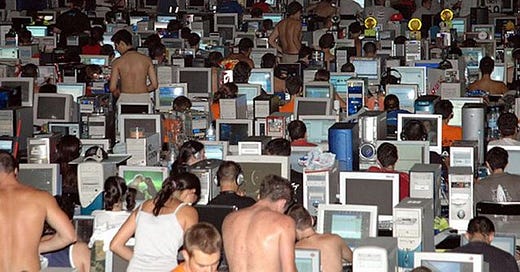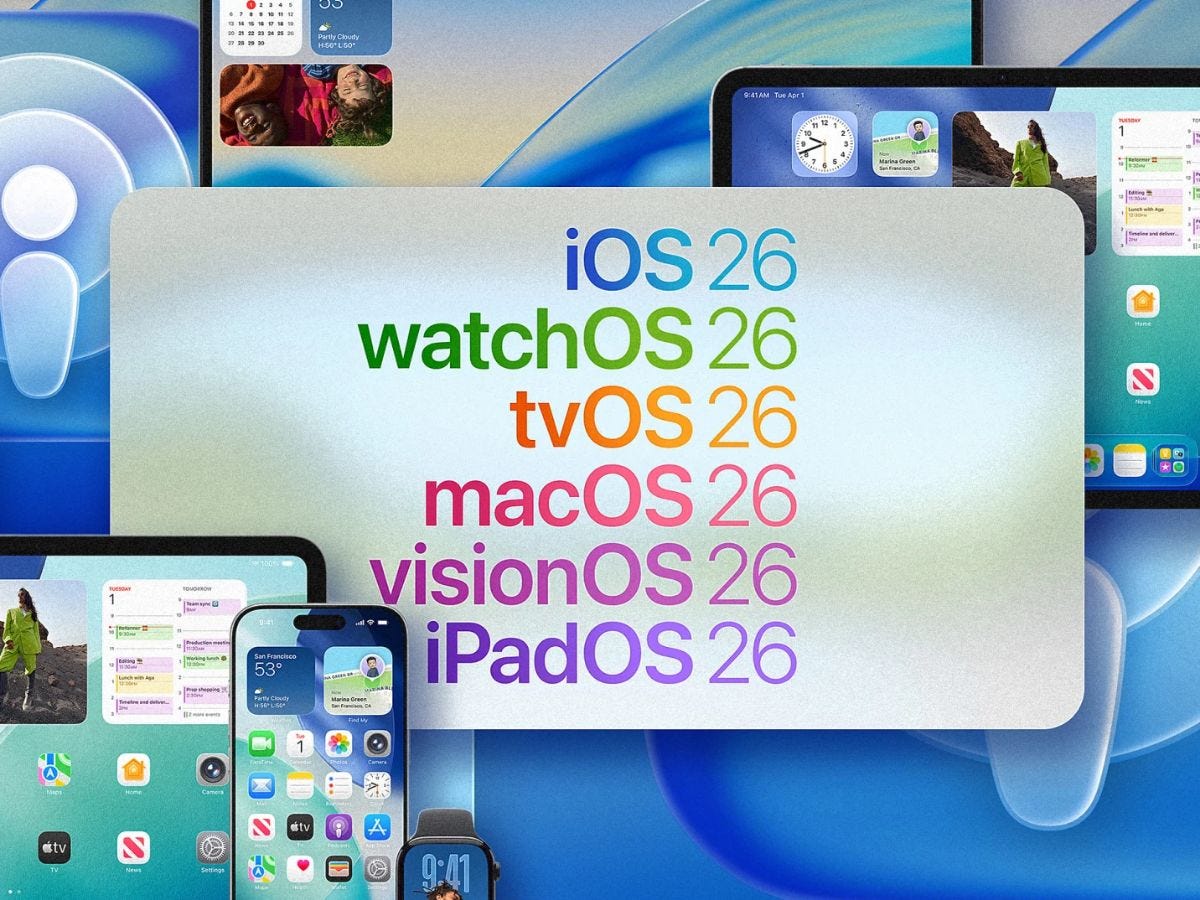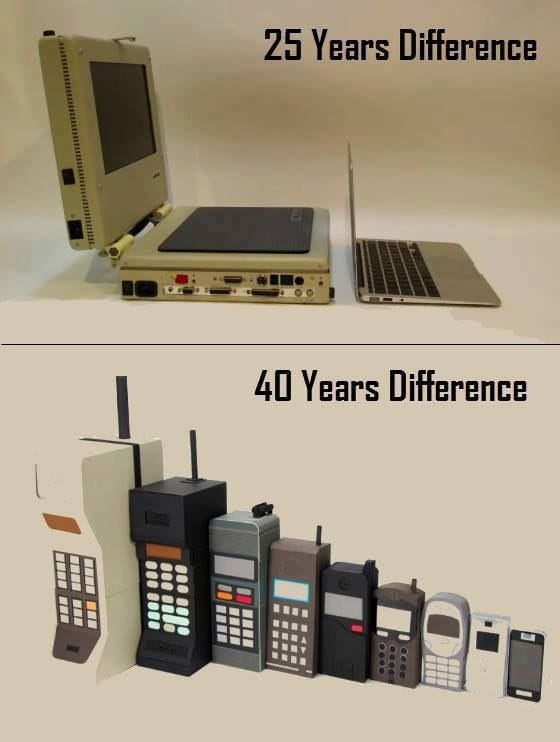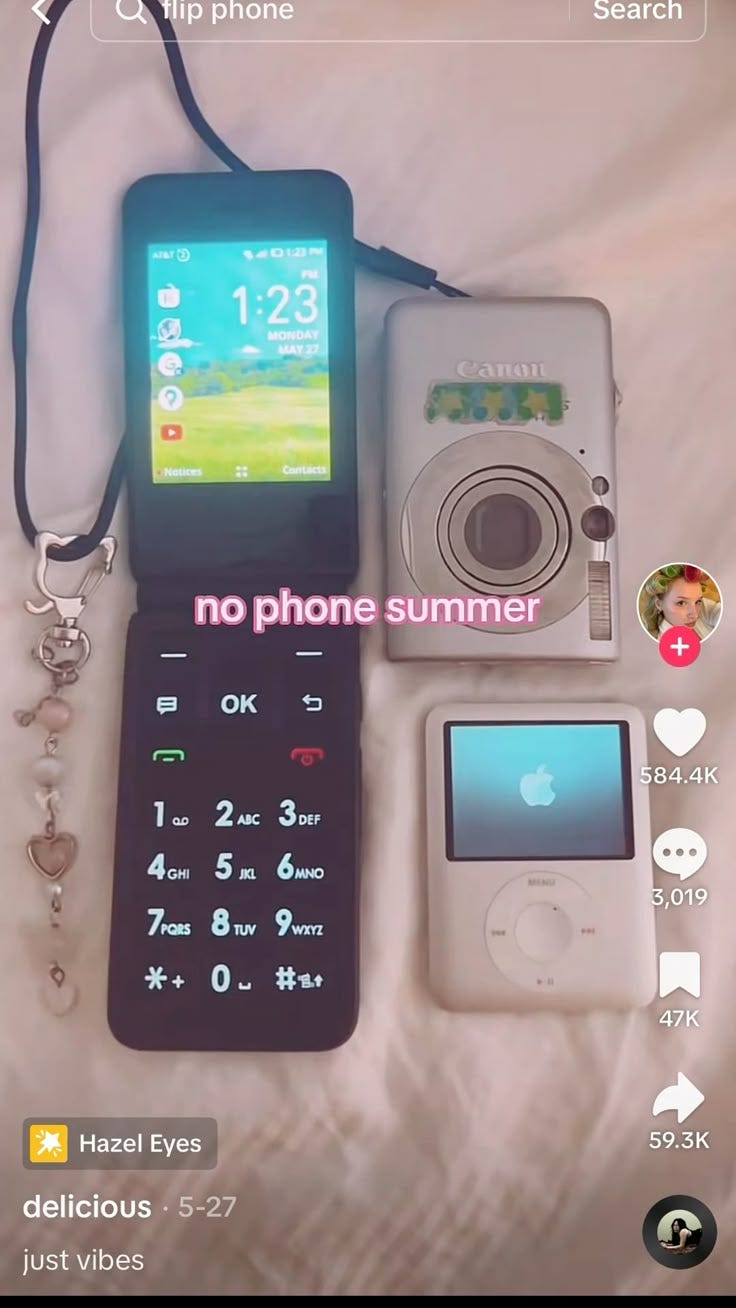Apple Forces Us to Evolve, But Is It Ethical?
A philosophical analysis of what happens when opting out isn’t an option and why innovation stops being exciting once it becomes mandatory.
I was watching WWDC last week: Apple’s big rollout of all their new tech updates and I realized something felt different. I used to get so excited for these keynotes and curious to see what new features were coming next but now the feeling’s shifted. Now, I sometimes catch myself sighing, thinking: Damn. Another thing I have to get used to.
That feeling is a very specific kind of fatigue…. not the kind that comes from working too hard, but from adapting too often.
I update my phone and suddenly my home screen looks different.
I update my app and buttons are in a new place. I need a new charger, A new workflow, A new rhythm. Again.
The wildest part about it is that I don’t choose any of it. I’m forced to adapt. That’s when the light bulb went off. Oh! We’re not just updating our phones. We’re updating ourselves!
Do you think it’s ethical that you are forced to upgrade or update?
Where Do the Unconnected Belong?
Some of us are moving through these shifts automatically without even noticing while others are being left behind.
Like my grandfather for example. He’s 94 and doesn’t own a “smartphone”, a computer, nor does he have an email. Yet most of his doctors now require him to download apps, access portals, and confirm his appointments online. That means my aunt (his care taker) has to do it all for him. She’s his 2-factor authentication. But what if she wasn’t around?
Not only is that a gap, it’s a system failure. One that assumes everyone has the tools, literacy, and access to keep up.
What Apple does to us with every update, the world is starting to do to everyone. My grandfather isn’t resisting change, he just doesnt have the resources and isn’t equipped for the system that keeps evolving without him. The rest of us adapt on autopilot.
System Updates Are the New Natural Selection
UX Darwinism is a term that I came up with inspired by my grandfather’s situation to explore the above philosophical question and to describe what happens when design evolution outpaces human access. This term decenters innovation as the driving force of technology and makes it more about elimination for those who can’t keep up.
The more fluent you are with technology, the more likely you are to survive inside these systems. But if you're not fast enough or fluent enough, not only do you fall behind, you fall out. The technology doesn’t slow down for anyone. It just keeps updating.
Here’s a graph I created to illustrate this at scale :
This graph shows the widening gap between the pace of tech evolution (pink) and the pace of human adaptation (blue) over the last decade.
While technology (like Apple’s systems) continues to accelerate exponentially, human adaptation is slowly plateauing. We can only evolve so fast—emotionally, mentally, and systemically. We can’t add gigabytes to our internal storage capacity the same way a computer can. And that’s where UX Darwinism becomes a threat to creative wellness and equity.
The further apart these lines grow, the more people are left behind. Not because they lack intelligence or creativity, but because they simply can’t (or shouldn’t have to) keep pace with machine logic.
How UX Darwinism is Changing Us
With every tool or update that is built, there is a new habit that we have to develop in order to match the adaptation. Those habits shape how we show up creatively, think, and how we express ourselves. Over time, they begin to define our standards and eventually what we consider “good enough” or “on trend” isn’t always a creative decision or a reflection of our taste level, it’s a by-product of what the system categorizes as normal.
It’s kind of like walking on a treadmill that speeds up a little bit every time you get comfortable. Eventually, you stop noticing the pace and just focus on not falling off. That’s how creativity today feels at time : frictionless, but not free. We’ve been trained to move faster, post cleaner, and optimize our ideas for efficiency instead of depth.
And to be clear, I’m not saying that evolution is the enemy. Access to good design, intuitive tools, and real-time innovation has empowered so many of us to build, connect, and express in ways that weren’t possible a decade ago. The ability to record a song on your phone, run a business from your couch, or Facetime my grandfather from across the country is incredible. The question isn’t whether progress is good, it’s who it’s designed to leave behind. That’s where the ethics come in because real innovation isn’t a race to the the future. It’s about making sure more people can meet it on their own terms without feeling bad for getting last place.
Creative Wellness Practices to Counter Hyper Adaptation
If you're feeling a little worn from the constant adaptation, here are some creative wellness practices to help protect your peace in a world that has automatic updates toggled “on” :
Un-sync your tools. Use one device that’s not connected to the cloud or wifi (like an old iPad or camera) for pure creation without any notifications.
Make something that can’t be posted. A handwritten letter, a scrapbook page, a voice memo to your future self. Let the act of creating be enough.
Give your workflow a safe word. If you find yourself over compensating an idea or spiraling into system changes, say your safe word (mentally or out loud) to snap out of it and return to your original idea.
Host a 'creative fast.' Spend 24 hours not consuming any new content. No scrolling, no streaming, no email newsletters (even this one 😅). Just make, feel, or observe.
Limit your interfaces. If you normally switch between 3-4 apps to create, try making something using only one. Force your brain to build within a tighter frame.
Rehearse boredom. Instead of defaulting to stimulation, schedule 10 minutes of intentional stillness. Take a hot girl walk without your phone or just sit. This is where ideas often show up.
Give your ideas a 24-hour incubation window. When something exciting hits, don’t post it right away. Let it live privately for a day. This builds discernment—and better ideas.
Reset your inputs. Surround yourself with ideas, visuals, and references that feel like you and not what your feed is serving you.
And if you’re looking for a little inspiration to recalibrate your taste and reset your inputs, I’m sharing my favorite creative cravings, curiosities, and current obsessions tomorrow in Taste Buds - a newsletter series where I share what’s been creatively feeding me : textures, sounds, ideas, objects, and obsessions that are helping me reset my senses and remember what I actually like.
Who knows, you might just find something in there that will unlock your next idea.
See you tomorrow
DonYé XoXo








i've been anti-update/upgrade for some years now. sometimes it makes me feel less tech savvy but I love to take my time indulging into new tech. I haven't even given chatgpt a chance yet lol. I still collect physical media & write all my ideas in a notebook. I love the idea of having a device not synced to anything. will try this. thanks :)
I think Apple has done an excellent job at chasing “newness” whether it’s through design, function, or lifestyle branding. They’ve mastered the art of keeping up with (and ahead of) the Joneses. One could argue they’ve defined what the Joneses even look like. While there’s truth in the critique that we’re constantly being forced to adapt, I also appreciate that Apple allows users to opt out of updates if they choose, though socially and systemically, opting out isn’t always realistic.
When I travel, I often notice that most people aren't using iPhones, especially the global majority. Many carry Androids or basic smartphones with just enough functionality to access WhatsApp, browse the internet, or make calls. Yet here in the U.S., we’ve built convenience systems like MyChart, digital wallets, and cloud-based learning apps that assume everyone is “connected,” when in reality, a vast number of people globally (and locally) are not.
So to ask whether it's ethical to use a device whose materials are unethically sourced, while also participating in a system that leaves the most vulnerable behind, feels like a rhetorical question. Of course, the answer is layered. Innovation should serve people, not alienate or erase them.
It’s not just about whether tech evolves, it’s about who it evolves for. And if progress inherently excludes or burdens certain populations, especially elders, those without access, or folks from under-resourced communities, then it’s not truly progress, its systemic drift disguised as evolution.
Thanks for this piece, DonYé. Your think pieces have honestly become my morning coffee and newspaper moments. This is a necessary check-in on where we’re headed, the pace of life, access, and what it means to be designed for.